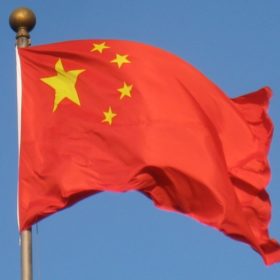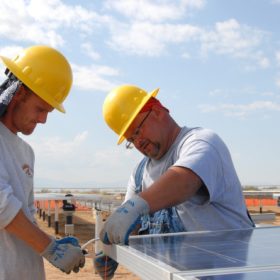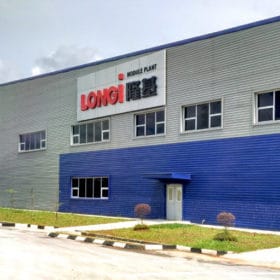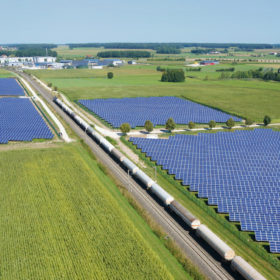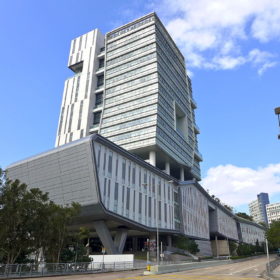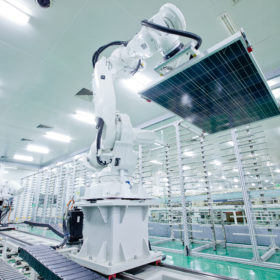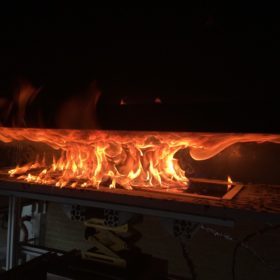Pilot agrovoltaic project with mobile PV modules launched in France
The solar facility, near Lyon, will be developed by Engie unit Compagnie Nationale du Rhône. Tests will be carried out for three years at a project intended to demonstrate the benefits of combining solar with agriculture.
China holds firm on strategy to build self-sufficient domestic polysilicon industry
The Chinese government will extend duties on U.S. and South Korean polysilicon for another five years from today despite committing to buy $200 billion more American goods and services in the trade deal signed on Wednesday. Poly manufacturer REC Silicon says it expects polysilicon to form part of that trade agreement.
A clean energy world would support millions of new jobs
A study from Finland’s Lappeenranta University of Technology has predicted solar and other renewables can provide a global energy jobs revolution – just as four European operations revealed recent struggles.
Longi claims 22.38% efficiency world record for PERC mono panel
The Chinese manufacturer said the result was confirmed by Germany’s TÜV Rheinland. The achievement beats the company’s previous record of 21.65%, set last month.
Turkish solar reaches 6 GW
The nation deployed around 923 MW of new solar last year. Around 350 MW came in the form of unlicensed projects given an extension to their grid-connection deadlines.
Building Energy to lay off 28 employees in Italy
The Italian developer has announced most of its 37-strong Italian workforce will be laid off without spelling out why.
Germany’s special PV tender concludes with average price of €0.0568/kWh
Tariffs ranged from €0.0470 to €0.0620 as the solar power price rose from the last national procurement round, which settled at €0.0459-0.0520 in October for an average €0.0490/kWh. Some 501 MW of generation capacity was allocated in the latest exercise.
All-inorganic perovskite solar cell hits 16.1% efficiency
Researchers from the City University of Hong Kong have developed an all-inorganic perovskite cell with an electron-pair donor which offers a pair of non-bonding electrons. The cell was developed by applying that ‘Lewis base’ small molecule to passivate the inorganic perovskite film.
Jinko claims two more efficiency records for bifacial panels
The Chinese manufacturer has achieved conversion efficiencies of 21.82% and 22.49% for its p-type PERC and n-type HOT bifacial panels, respectively. The results were confirmed by Germany’s TÜV Rheinland.
Mind the gap
Fire safety engineering researchers have demonstrated increasing the gap between the modules of commercial PV arrays and flat roof surfaces is a decisive factor in reducing fire risks. Experiments have identified a critical gap height below which flame spread rate increases significantly.

